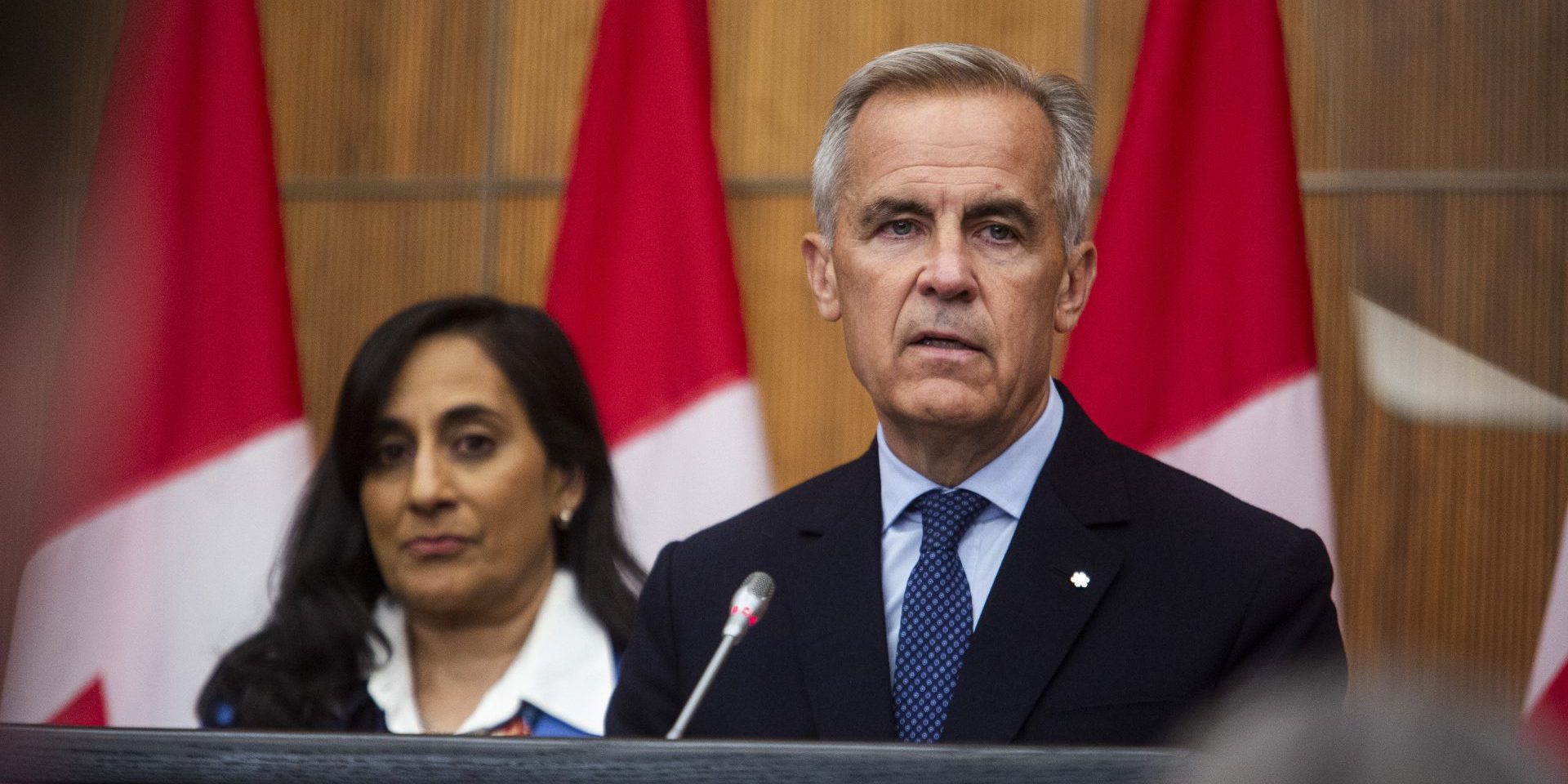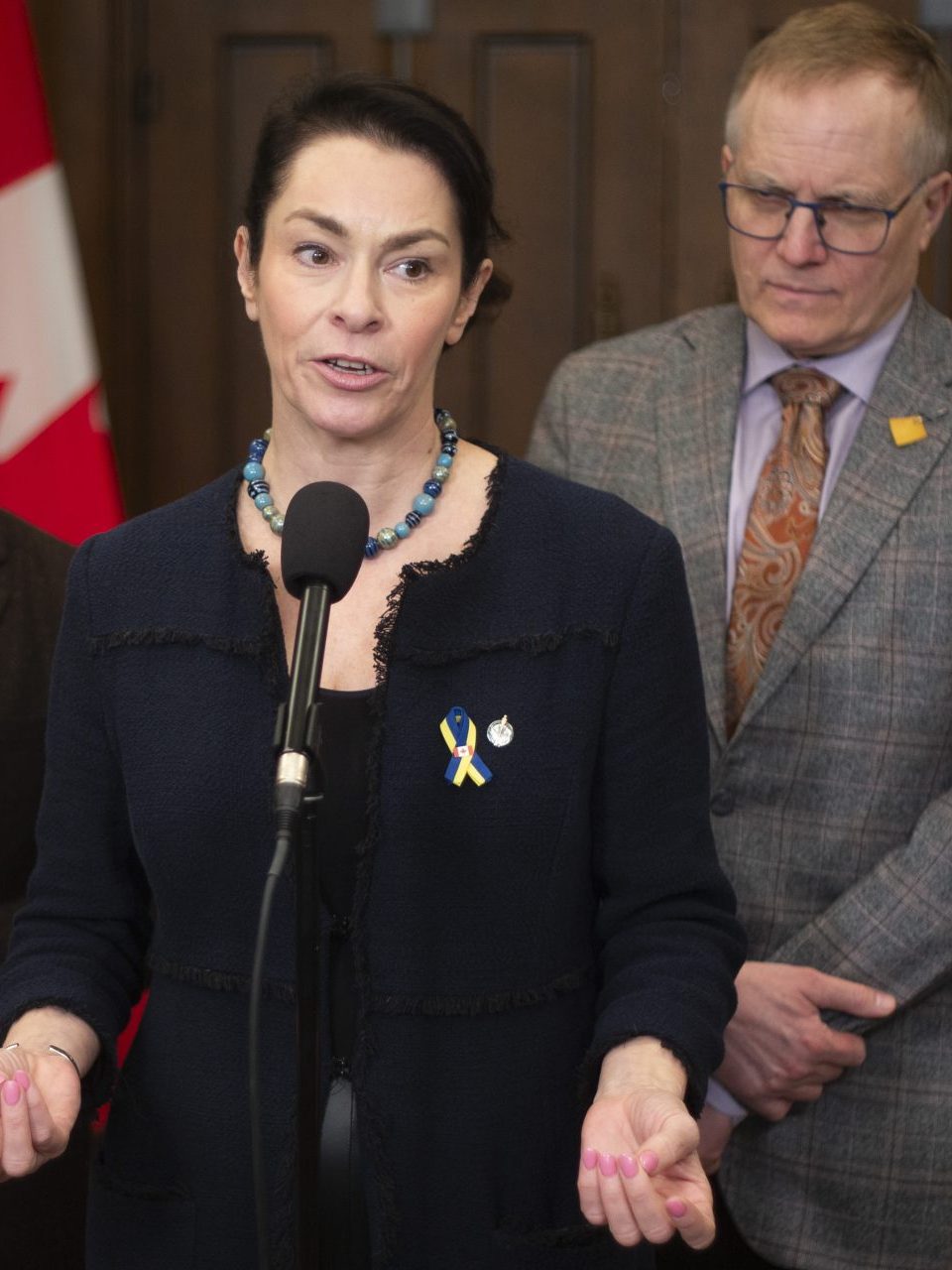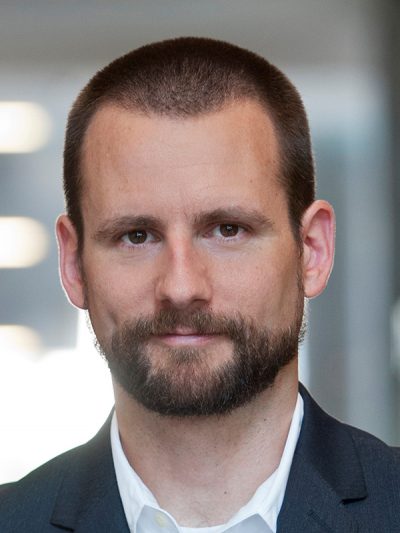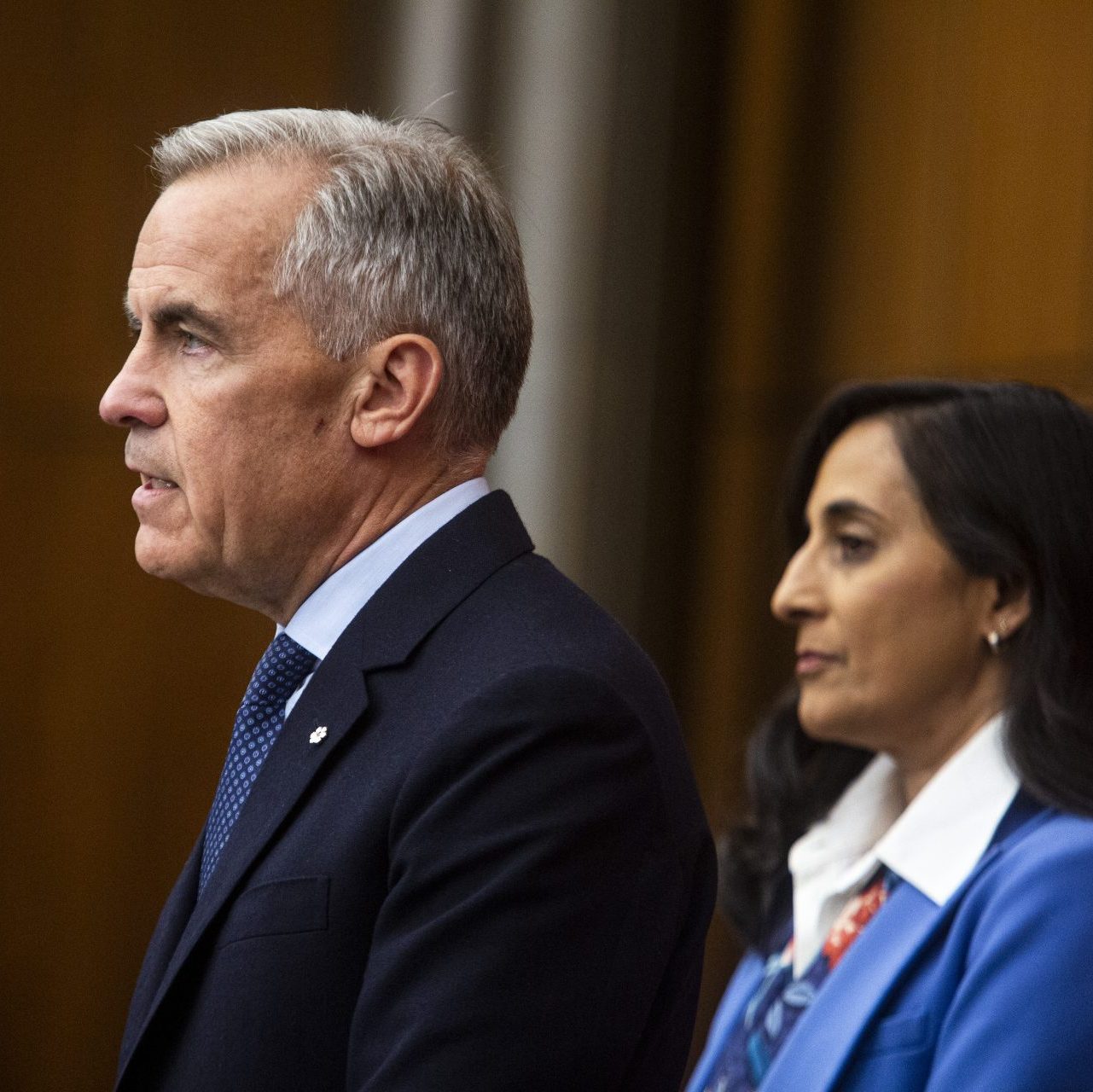‘Waiting is deadly for Palestinians’: Canada can’t put off state recognition, says NDP’s McPherson

As Israel begins the initial stages of an expanded military operation in Gaza, Canada can’t wait another month to recognize Palestine and must take concrete action now to defend a future two-state solution and international law, says NDP foreign affairs critic Heather McPherson.
But as the United States revokes Palestinian Authority visas and sanctions international court judges, it creates a “zone of uncertainty” about the recognition’s impact, no matter the timing, according to foreign policy expert Thomas Juneau.
Juneau, an associate professor of international affairs at the University of Ottawa and a former Middle East policy analyst for the Department of National Defence, said that he broadly supports the government’s “imperfect” intention to recognize a Palestinian state. Still, the announcement lacked clarity on “why now?”
On July 30, Prime Minister Mark Carney (Nepean, Ont.) announced that Canada intends to recognize the State of Palestine at the United Nations General Assembly later this month, provided that the Palestinian Authority, the recognized governing body in the West Bank, agrees to fulfill certain conditions.
The 80th session of the General Assembly will officially open on Sept. 9, with the first day of the high-level general debate beginning on Sept. 23.

Carney said that recognition is “predicated on the Palestinian Authority’s commitment to much-needed reforms,” including general elections to be held by 2026, “in which Hamas can play no part,” and demilitarization.
The decision followed Carney’s discussions with Palestinian Authority President Mahmoud Abbas earlier in the day, as well as similar announcements by United Kingdom Prime Minister Keir Starmer the day before, and from French President Emmanuel Macron the week prior.
Carney told reporters that he had spoken to both Starmer and Macron in the days leading up to Canada’s announcement. In their judgment, “the prospect of a Palestinian state is literally receding before our eyes,” Carney said.
The prime minister pointed to the threat of Hamas and its rejection of Israel’s right to exist, the expansion of Israeli settlements in the West Bank, and “the ongoing failure by the Israeli government to prevent the rapidly deteriorating humanitarian disaster in Gaza” as “steadily and gravely erod[ing]” a future two-state solution.
On Aug. 29, the U.S. State Department said it is denying and revoking visas held by members of the Palestinian Authority and the Palestine Liberation Organization ahead of the General Assembly.
The State Department said that the Palestinian Authority mission to the UN will receive waivers, but also warned that it must “end its attempts to bypass negotiations through international lawfare campaigns … and efforts to secure the unilateral recognition of a conjectural Palestinian state.”
In a July 30 statement, the Conservative Party condemned Carney’s announcement as a “reward” for Hamas, and said it “legitimizes terrorism,” noting that while the Conservatives have “long supported a two-state solution,” they would not “cave to political pressure or reward terror with recognition.”
Conservative MP Michael Chong (Wellington–Halton Hills North, Ont.), his party’s foreign affairs critic, was unavailable for an interview and did not respond to The Hill Times‘ request for written comment by publication deadline.
In an Aug. 27 interview, McPherson (Edmonton Strathcona, Alta.) said Canada cannot wait until later this month to recognize Palestine “because waiting has proven so deadly for Palestinians.”
Despite the rejection of the announcement by Israel’s foreign affairs ministry and its ambassador to Canada, Iddo Moed, McPherson pointed to the Israeli citizens—including families of hostages—currently protesting their government, demanding an agreement to release their loved ones and an end to the war.

The escalation in Gaza “is so dangerous and will not result in peace for Palestinians or Israelis,” McPherson said. “There is only a diplomatic solution, and if we believe that both Palestinians and Israelis have a right to live in peace in their countries, then we have to recognize the state of Palestine.”
On Aug. 29, Israel announced that the “initial stages” of the planned offensive in Gaza City and the surrounding areas had begun, and that it had suspended the scheduled midday pauses in fighting that were implemented to allow for the distribution of food and humanitarian aid.
Israel’s military also announced it had recovered the body of one hostage and the remains of another, one of whom was identified as Ilan Weiss, a man who had been killed in the initial Oct. 7, 2023, Hamas terrorist attacks that killed more than 1,100 Israelis and saw more than 200 people taken hostage. Weiss’ daughter and wife were also held hostage but were released in November 2023.
There are still 48 hostages held by Hamas, of which the Israeli military believes less than half are still alive.
By the end of August, the death toll in Israel’s war had surpassed 63,000 Palestinians, according to the Gaza Health Ministry.
On Aug. 22, the Integrated Food Security Phase Classification (IPC) Famine Review Committee released a report confirming that famine is occurring in parts of Gaza, and “rapidly spreading” to other areas of the enclave.
In an Aug. 23 statement, Secretary of State for International Development Randeep Sarai (Surrey Centre, B.C.) said Canada is “deeply alarmed by the horrific deteriorating conditions in Gaza,” and called for an immediate ceasefire to increase the delivery of food and humanitarian aid.
Beyond recognition of Palestine, McPherson said there are several actions Canada “can and is legally obligated to take,” including implementing a full arms embargo, suspending the Canada-Israel Free Trade Agreement, and imposing further sanctions on Prime Minister Benjamin Netanyahu and members of his government.
On June 10, Canada imposed sanctions on Israeli Finance Minister Bezalel Smotrich and National Security Minister Itamar Ben-Gvir in co-ordination with the U.K., Australia, New Zealand, and Norway for “inciting violence against Palestinians in the West Bank.”
“This government needs to take action and make that happen now,” McPherson said, adding that there is much more Canada can and should be doing, but is currently doing very little beyond symbolic statements.
Lack of clarity, Trump’s inconsistency creates ‘zone of uncertainty’ over Canada’s Palestine recognition: Juneau
Carney has offered little rationale for what Canada hopes to achieve, nor why it foreshadowed its recognition by nearly two months, Juneau said.
“Ultimately, there’s no timing that obviously makes sense for this, but—to me—the government hasn’t sufficiently explained its rationale for doing this,” Juneau said. “The easy criticism is that this is just performative.”
Additionally, Juneau said the government has not explained how it plans to define success or progress in relation to the criteria it set out, or how that will be assessed.

“It was evident at the time that sufficient progress would not be made in that very short term, and that, in all likelihood, there would actually be regression before September,” Juneau said, pointing to the escalating crisis in Gaza since the announcement, as well as the recent approval of a large settlement in the West Bank that even its proponents claim would kill a future Palestinian state.
Two days before the IPC report, Israel approved the controversial E1 settlement project east of Jerusalem, which previous U.S. administrations had opposed as it would functionally divide the West Bank into two, destroying plans for a future Palestinian state.
The plan’s proponents have said much the same, including Smotrich, who said the approval “finally buries the idea of a Palestinian state.”
Foreign Affairs Minister Anita Anand (Oakville East, Ont.) signed on to a joint statement—alongside foreign ministers and representatives of 20 G7 and European countries—in condemning the approval and calling for an immediate halt to all settlement construction.
Juneau said that Netanyahu’s government opposes a two-state solution, alongside the majority of the Israeli Knesset who voted overwhelmingly in July 2024 to reject any future Palestinian state, and that is not likely to change regardless of what Canada does.
What is more uncertain is how the recognition will impact Canada’s relationship with the U.S. and the ongoing trade negotiations with President Donald Trump, Juneau said.
“To me, the U.S. angle is critical, but it’s not entirely clear where Trump stands,” Juneau said, noting that Trump is “consistently inconsistent.”
“There’s a huge zone of uncertainty on this.”
While Trump declined to take a position on the U.K.’s planned recognition while visiting Scotland, he later said that Canada’s announcement would make it “very hard” to make a trade deal with this country.
Trump’s administration also recently sanctioned a Canadian judge, Kimberly Prost, serving on the International Criminal Court (ICC) for ruling to authorize the court’s investigation into the conduct of U.S. personnel in Afghanistan.
Three other ICC judges—France’s Nicolas Guillou, Fiji’s Nazhat Shameem Khan, and Senegal’s Mame Mandiaye Niang—were also sanctioned over their involvement in the investigation into Israel’s actions in Gaza and the Israeli-occupied West Bank, according to the U.S. State Department’s press release.
Canada has not officially commented on the sanctions, but Anand indirectly referenced them in a statement following a Sept. 2 conversation with Prost.
“Members of the judiciary, including those who serve in international courts, are entrusted to be objective and impartial in the dispensation of their duties. I have the utmost confidence in Judge Prost’s capacity to have done, and continue to do just that,” Anand’s statement reads, without explicitly mentioning the sanctions.
Additionally, sources in Anand’s office have stated that the issue was previously raised during her meeting with U.S. Secretary of State Marco Rubio on Aug. 21, the day after he announced the sanctions.
Juneau said that it shouldn’t surprise anyone that Trump would be willing to use Palestinian statehood as a negotiating tool, despite some previous comments empathizing with the humanitarian situation in Gaza.
“We have to be careful not to make decisions that will be too costly on the relationship, but it’s a difficult balance to strike because we don’t really know where Trump stands,” Juneau said.
The Hill Times






 LICENSING
LICENSING PODCAST
PODCAST ALERTS
ALERTS













